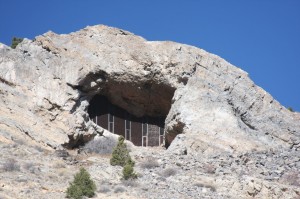by John Orr
Preston Frank Kaess Moves on to Greener Pastures
Mr. Kaess passed on Nov. 6, 2013 in La Junta.
Born in Rocky Ford, Kaess never ranged far from the Arkansas River and its tributaries, and in particular, Salida, where he graduated from high school in 1948 and married his wife, Patricia, in 1950. He and his family farmed near Adobe Park and ranched up on Cameron Mountain, according to The Mountain Mail.
Irrigators know that the water business is simple in concept – gravity, water and beneficial use. You’re either using gravity to move water or fighting gravity to move water. An innovator at heart, Kaess is known to have installed the first gravity flow irrigation system in the Upper Arkansas Valley, according to The Mountain Mail.
Kaess retired from agriculture in 1985; he and Patricia then opened FreightWeight, an electronic scale company that operated across the U.S. He was a founding member of the Heart of the Rockies Rodeo Association and was a 4-H leader for many years, supporting the group with their projects and leading trail rides.
Kaess leaves a legacy of innovation and service to family and community.
National Ski Areas Association Versus the U.S. Forest Service
There has been a flurry of activity lately in the confrontation over the U.S. Forest Service’s (USFS) permit requirement that would force ski areas to tie water rights to the land in the name of the U.S. government. The USFS is concerned that a ski area may sell off their water rights which would make the business non-viable as most resorts rely on snowmaking for an early season base. The National Ski Areas Association (NSAA) claims that the clause amounts to a “taking” of private property rights. (See the April 2012, December 2012, and May 2013 issues of Colorado Central for more background.)
The NSAA sued, and a federal judge ordered the Forest Service to comply with federal law requiring public comment on such significant changes in policy. No new policy has been made public. The court sidestepped the issue of property rights.
It seems that U.S. Rep.Scott Tipton (CO-CD3) had seen enough. In September, he introduced H.R. 3189: The Water Rights Protection Act. Tipton was not only concerned with ski area water rights, he wanted to make sure to rope in the federal government everywhere they issue permits on federal lands. Many organizations have lined up in support of the bill, including local organizations: The Rio Grande Water Conservation District; The Upper Arkansas Water Conservancy District; The Rio Grande Watershed Association of Conservation Districts; and the Rio Grande County Commissioners.
U.S. Rep. Jared Polis (CO-CD2) is a cosponsor, and Wyoming Sen. John Barasso introduced a companion bill in the U.S. Senate.
Perhaps the most interesting turn in the story took place the first week of November. Colorado U.S. Sen. Mark Udall brokered a compromise (over several months) with the Forest Service that led to this statement from Forest Service Chief Tom Tidwell:
“We believe that these changes will provide assurances to the public and communities that depend on economic activities from ski areas that they will continue to provide recreation opportunities … we believe that these objectives can be met without requiring the transfer of privately owned water rights to the government.”
Tipton’s bill passed the House Natural Resources Committee on Nov. 15.
Short Takes
• Gov. Hickenlooper issued an executive order in April calling for the Colorado Water Conservation Board to complete a statewide water plan by December 2014. You can view their progress and participate in the plan at the new website introduced in November: coloradowaterplan.com.
• Snowpack in the Arkansas Basin is way ahead of last year at 88 percent of average. That compares to 36 percent at this time last year. The Upper Colorado River Basin is also faring better at 104 percent compared to 51 percent a year ago. Monsoon rains over the summer have bolstered stream flow in the Arkansas River heading into winter.
• State Engineer Dick Wolfe is rattling sabers over groundwater pumping in the San Luis Valley. Recently he told attendees at a well rules advisory meeting, “There are three options: groundwater management plan accepted by the court, like a sub-district; augmentation plan; or you get shut off.”





